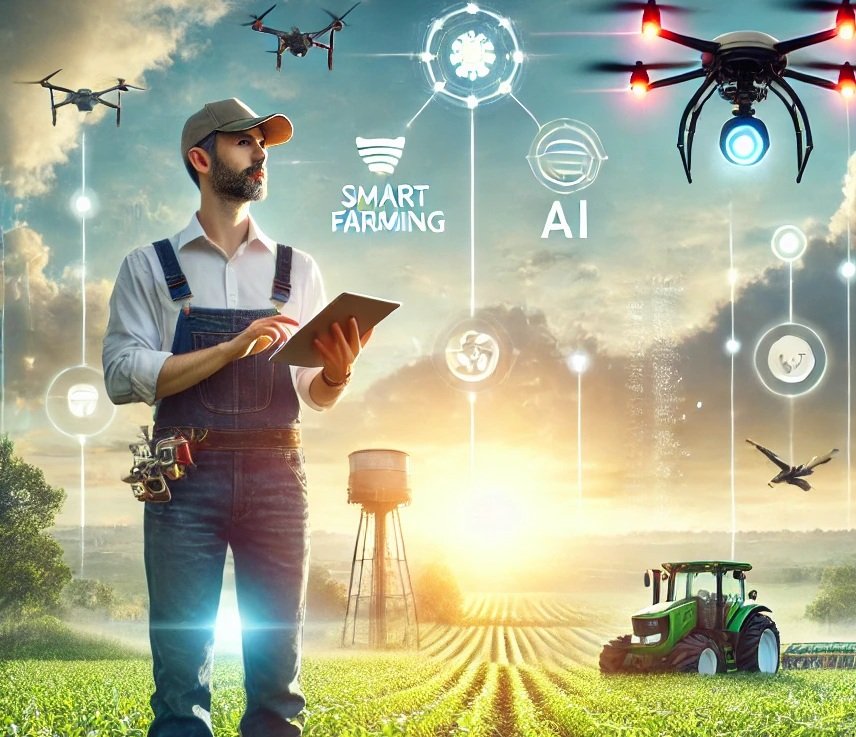Government Schemes
Agriculture Minister Stresses Quick Transfer of Farm Technologies from Labs to Fields to Boost Sustainable Farming

{ Agriculture Minister Shivraj Singh Chouhan on Saturday (March 22, 2025) underscored the urgent need to bridge the gap between research and practical applications in the field of agriculture. Speaking at the 63rd convocation ceremony of the prestigious Indian Agricultural Research Institute (IARI), Chouhan emphasized the swift transfer of farm technologies from laboratories to fields to improve productivity, enhance sustainability, and address global agricultural challenges. }
The minister’s speech was a clarion call to researchers, scientists, and agricultural students to channel their efforts into developing practical solutions for the real-world problems faced by farmers. By fast-tracking the adoption of agricultural innovations, Chouhan believes India can strengthen its agricultural sector, improve farmers’ incomes, and build resilience against climate change.
The Need for Sustainable and Climate-Resilient Farming
One of the core themes of Chouhan’s address was the importance of sustainable agriculture and climate-resilient farming practices. India’s agricultural landscape, heavily reliant on monsoons, is vulnerable to the adverse impacts of climate change, such as erratic rainfall patterns, droughts, and floods. The minister stressed that research and innovation must focus on developing climate-smart technologies, drought-resistant crop varieties, and efficient irrigation systems.

He highlighted that sustainable farming is not just about protecting the environment but also about ensuring long-term profitability for farmers, especially small and marginal farmers, who form the backbone of India’s rural economy.
Organic and Natural Farming: The Way Forward
Chouhan also advocated for organic and natural farming, which he described as essential for promoting soil health, reducing chemical dependency, and ensuring food safety. The rising demand for organic produce, both in domestic and global markets, presents a significant opportunity for Indian farmers. By encouraging organic farming practices, Chouhan aims to position India as a global leader in sustainable agriculture.
Role of Smart Farming and Digital Technologies
Another key focus of the minister’s speech was the potential of advanced digital technologies and smart farming to transform Indian agriculture. From precision farming and drone technology to artificial intelligence (AI) and machine learning, digital innovations can help farmers optimize resource use, reduce costs, and improve yields.
Chouhan emphasized that the widespread adoption of such technologies is crucial to addressing the challenges posed by a growing population, climate change, and depleting natural resources.
“Research will have to be further strengthened to make India a leader in the agricultural sector,” he said, urging agricultural scientists to collaborate with startups, entrepreneurs, and industry leaders to fast-track innovation.
Boosting Farmer Income Through Research and Startups
With over 86% of India’s farmers categorized as small and marginal, boosting their income remains a top priority for the government. Chouhan pointed out that research, innovation, and entrepreneurship hold the key to achieving this goal.
He urged young agricultural graduates to explore opportunities in agritech startups and contribute to solving grassroots challenges. The government, he assured, is committed to supporting startups through funding, incubation, and mentorship programs.
IARI’s Role in India’s Agricultural Growth
The Indian Agricultural Research Institute (IARI), often referred to as the “cradle of the Green Revolution,” has played a pivotal role in shaping India’s agricultural trajectory. Chouhan lauded the institute for its contributions to India’s agricultural growth, noting that the country’s agricultural growth rate currently stands at 5%, thanks to the combined efforts of IARI researchers and farmers.
IARI’s innovations in high-yielding crop varieties, pest management, and post-harvest technologies have not only increased food production but also strengthened India’s food security.

Call to Action for Students and Researchers
Addressing the graduating students, Chouhan urged them to take up the mantle of agricultural transformation. He encouraged them to pursue research that addresses real-world problems, create startups that offer innovative solutions, and collaborate with farmers to ensure that lab innovations reach the field.
The minister emphasized that the future of Indian agriculture depends on the collective efforts of researchers, policymakers, and farmers. By working together, he said, India can achieve the twin goals of food security and farmer prosperity.
Dignitaries in Attendance
The convocation ceremony was attended by several dignitaries, including Ministers of State for Agriculture Bhagirath Chaudhary and Ramnath Thakur, Union Agriculture Secretary and ICAR Director General Devesh Chaturvedi, and IARI Director Srinivas Rao.
Their presence underscored the importance of the event and reflected the government’s commitment to strengthening agricultural education, research, and innovation.
Conclusion
As India moves toward becoming a global agricultural powerhouse, the swift transfer of technologies from labs to fields will play a crucial role in achieving this vision. By focusing on sustainable and climate-resilient farming, promoting organic and natural farming practices, and leveraging digital technologies, India can build a future-ready agricultural sector that benefits farmers and consumers alike.
Agriculture Minister Shivraj Singh Chouhan’s address at IARI’s 63rd convocation was a timely reminder of the transformative power of research, innovation, and collaboration in driving agricultural growth and ensuring food security for future generations.





















